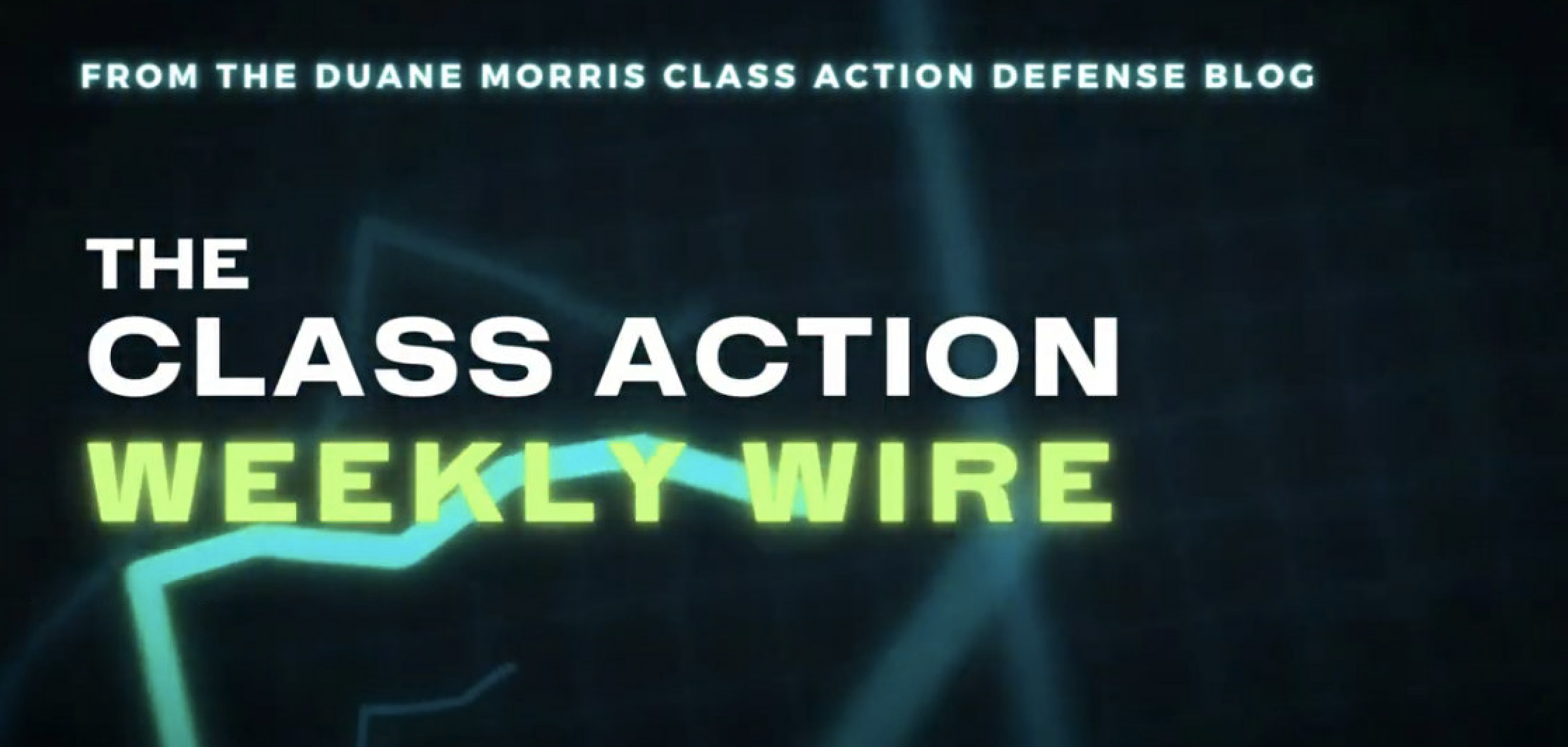 By Gerald L. Maatman Jr., Jeffrey R. Zohn, and Jesse S. Stavis
By Gerald L. Maatman Jr., Jeffrey R. Zohn, and Jesse S. Stavis
Duane Morris Takeaways: On June 27, 2023, Judge J. Paul Oetken of the U.S. District Court for the Southern District of New York denied certification in a putative class action filed under the Employee Retirement Income Security Act (“ERISA”) by a participant in a retirement plan offered by Teachers Insurance and Annuity Association of America (“TIAA”). In Haley v. Teachers Ins. and Annuity Ass’n, No. 17 Civ. 855 (S.D.N.Y. Jun. 27, 2023), the court brought an end to a legal battle that began in 2018 by applying an appellate ruling that held that Rule 23(b)’s predominance requirement obligates courts to consider not only a plaintiff’s allegations, but also a defendant’s affirmative defenses.
The decision is instructive for defendants who are faced with class allegations that purport to target a single policy or practice, but which in fact relate to numerous individual decisions. It should also serve as a reminder that defendants must consider not only the facial validity of a claim, but also the robust defenses available under the ERISA.
Case Background
Melissa Haley, an employee of Washington University in St. Louis, initiated her lawsuit against TIAA in 2018. She sought to represent participants in approximately 8,000 retirement plans that used TIAA’s services to allow members to take out loans against their retirement savings. Haley alleged that TIAA had departed from standard industry practices by retaining interest earned on participants’ collateral as compensation for administering loans. TIAA countered that while the transactions might be facially prohibited under Section 406 of the ERISA, they were permissible because they were covered by several of the defenses provided by Section 408 of the Act. Most significantly, TIAA argued that the transactions were permissible under Section 408(b)(17), which allows a plan to engage in otherwise-prohibited transactions where it pays no more and receives no less than “adequate consideration.”
Judge Oetken initially granted class certification in 2020 under Rule 23(b)(3) in Haley v. Teachers Ins. & Annuity Ass’n of Am., 337 F.R.D. 462 (S.D.N.Y. 2020). However, the Second Circuit vacated the ruling and remanded the case on the grounds that the district court had erred in assessing whether Rule 23’s predominance requirement had been met. See Haley v. Teachers Ins. & Annuity Ass’n of Am., 54 F.4th 115 (2d Cir. 2022). The predominance requirement mandates that plaintiffs demonstrate not only that there are common questions of law or fact in a putative class’ allegations, but also that such questions predominate over questions affecting only individual members. In conducting the predominance analysis, the Second Circuit held that the district court must not only consider a plaintiff’s allegations, but also must analyze a defendant’s defenses. Because the district court had not conducted a predominance analysis with respect to the Section 408(b)(17) defenses, the class certification order could not stand.
Southern District of New York Opinion
On remand, Judge Oetken considered whether both the alleged claims and defenses were “amenable to general, class-wide proof.” Haley, No. 17 Civ. 855, at 4 (citing Langan v. Johnson & Johnson Consumer Cos., 897 F.3d 88, 97 (2d Cir. 2018)). Plaintiff argued that similar issues of law and fact were involved in all of the putative class’ claims, but TIAA countered that evaluating the substantial consideration defense would require the district court to conduct an individualized assessment of how TIAA acted with respect to each of the roughly 8,000 plans involved in the litigation. Judge Oetken ultimately sided with TIAA, holding that “[t]he common issues that Plaintiff identifies as satisfying predominance are insufficient to overcome the individual issues raised by section 408(b)(17).” Id. at 6. Because there were clear differences in fees and plan structures, it would not be possible to arrive at common answers to the decisive question of whether there had been adequate consideration for each transaction.
The district court rejected Plaintiff’s attempt to draw class-wide conclusions from either her own plan’s arrangement or from statistical averages that allegedly showed that plan participants paid an average of 4.66% to receive 1.66% in returns. Allowing the class allegations to proceed based on these averages would constitute an impermissible attempt at “trial by formula,” which the district court held would be prohibited by both Rule 23 and the due process clause. Judge Oetken opined that “[t]he averages are probative of the parameters of the statistical sample, not common traits within it.” Id. at 7. Finally, the district court rejected Plaintiff’s attempt to save the class by dividing it into sub-classes because Plaintiff had failed to raise this argument earlier.
Implications For Defendants
ERISA class actions can be difficult to defend against, as Plaintiffs typically assert that discrete types of alleged plan mismanagement led to common injuries that affected large numbers of participants in similar ways. As a result, ERISA plaintiffs often do not face the same problems in establishing typicality, commonality, and predominance as do plaintiffs in other class actions. Haley is an exception to this rule. Defendant was able to show that the case was not about a single policy, but about numerous individual actions. The decision underscores the importance of probing deeply into a putative class member’s allegations to determine whether they meet the rigorous standards of Rule 23.
In addition, Haley shows just how powerful the affirmative defenses in Section 408 can be. As the district court noted, Section 406 is written so broadly that a plain reading of the section would ban many, if not most, transactions involving service providers like TIAA. However, the broad sweep of Section 406 is explicitly limited by the exemption defenses contained in Section 408. Accordingly, defendants who are accused of violating Section 406 must carefully consider the defenses provided by Section 408 and raise them in a timely fashion.








